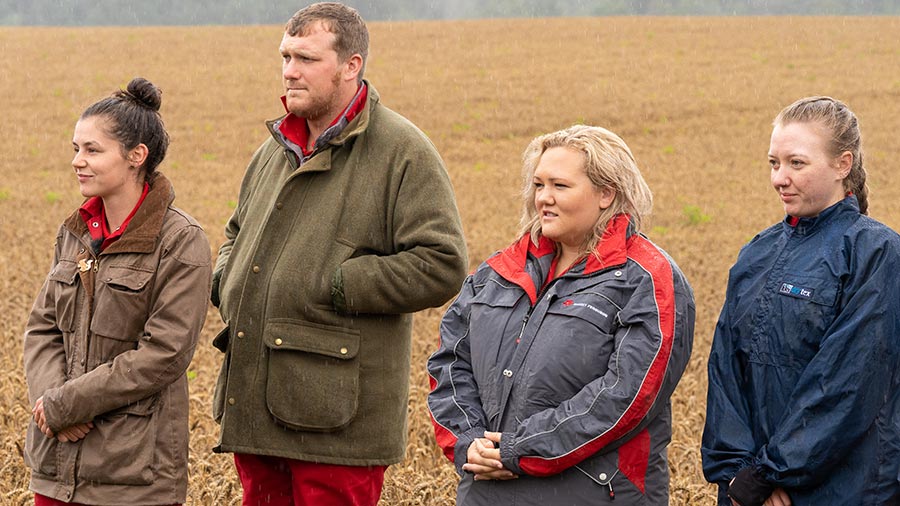Opinion: How to stand out in the competitive farm recruitment market
 © Tom Askew-Miller
© Tom Askew-Miller A combination of Brexit and the coronavirus pandemic created a perfect storm for all sectors, but with a reliance on seasonal and lower-skilled workers, the agriculture industry has been hit particularly hard.
A reduced ability to hire from abroad, poor health (physical and/or mental) and an increase in employees’ expectations are all pressing factors.
Survey data has reported that in October 2019, there was an average of 5,000 job vacancies in the UK for all sectors. This had risen to a staggering 1.3m in March 2022.
See also: Find our careers advice in one place
About the author

Ellie Summers is head of agricultural recruitment at Pink Agricultural Recruitment. Here she sets out how farmers can improve their chances of finding the right staff.
This is being matched by one in five people who could be economically active (employed or actively searching for employment), but have decided not to be.
These combined forces mean the country is experiencing the largest shortage of workers on record.
Following Brexit in December 2020, European workers’ ability to live and work freely within the UK became significantly more difficult.
This affected both seasonal and full-time working around the UK and created huge gaps in recruitment.
While there are specific visas available for seasonal workers, it is a hurdle many potential candidates appear unwilling to tackle.
More than two years after the start of the pandemic, data indicates employment levels for all sectors have fallen by 350,000.
While few of these will be within the agricultural sector, due to it being a key industry that was not stopped by the pandemic, it has been affected hugely by workers contracting the illness themselves.
Many roles are physical and the effects of long Covid are being reported, with some people unable to continue working.
The pandemic has not only affected people’s health, but also many candidates’ expectations.
With many sectors experiencing two years of flexible and remote working, perceptions of alternative opportunities within agriculture have changed.
Candidates are seeking more flexibility and are moving away from manual work, preferring to seek roles with opportunities to work from a desk or even the comfort of their own homes.
Those who remain in the much-reduced candidate pool are aware that they are in the driving seat and are able to be selective about which roles they apply for.
These candidates are often high quality, hungry for progression, and just the potential employees our industry wants to attract.
Marketing a role effectively is key to attracting the best candidate. This means more than simply publishing an advert.
Identifying the most attractive aspects of a role is important and will likely require more than only remuneration.
For many candidates, career progression opportunities, job security, quality and availability of accommodation, and reporting to a good manager, are just as important.
Anecdotally, poorly managed farms tend to lose people quicker than those that are not paying enough.
Actual promotion of a vacancy may include a variety of channels, such as adverts, social media and a recruitment agency, but it is important not to underestimate the value of promoting your own business.
Social media is the obvious route to do this these days, as most candidates are likely to search for your business online. A simple website has become a valuable tool for any business wanting to attract the best employees.
Agricultural roles have a huge number of benefits, from rural accommodation near countryside schools to job security, career progression and comparative remuneration.
For the sector to attract the best candidates in a very tight market, it is essential that both vacancies and businesses are promoted in a professional manner.
